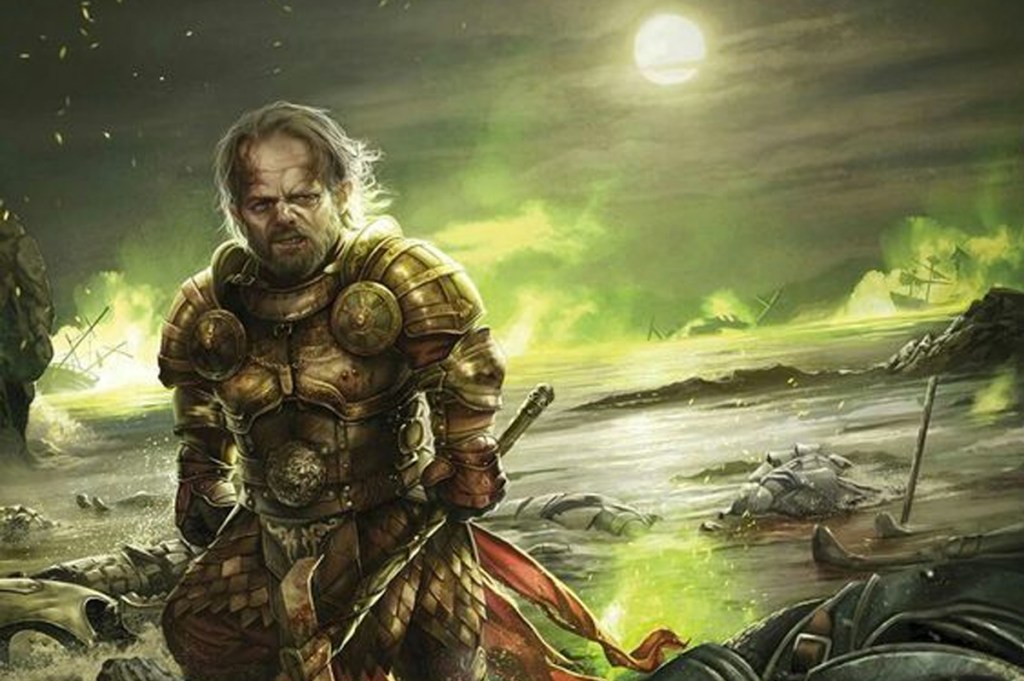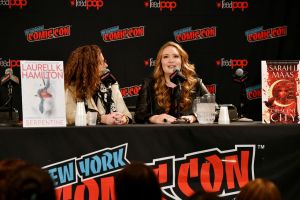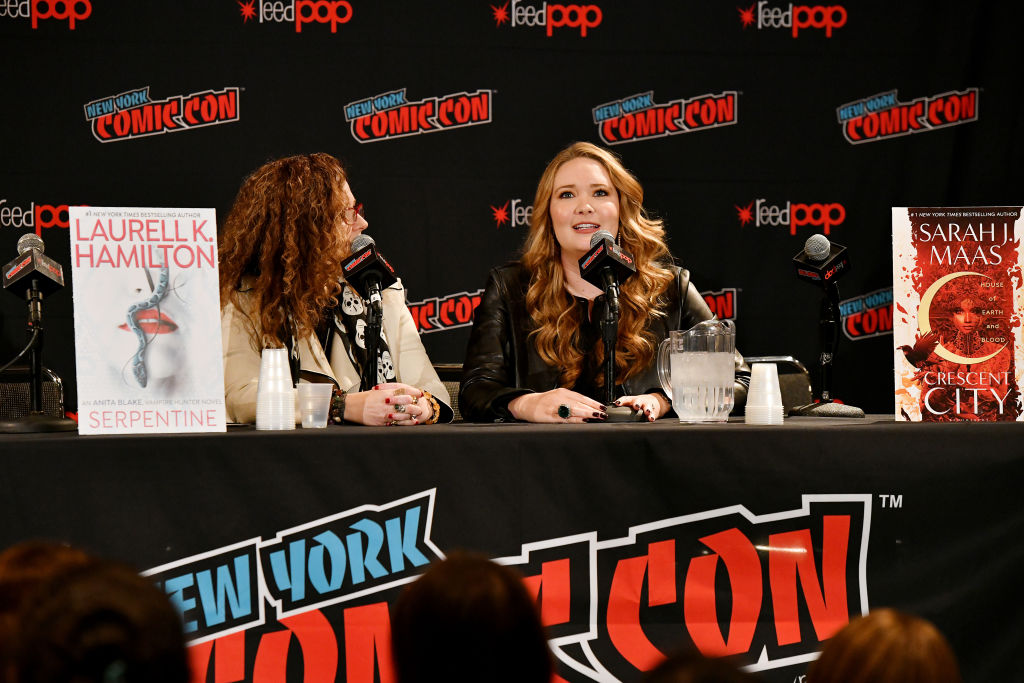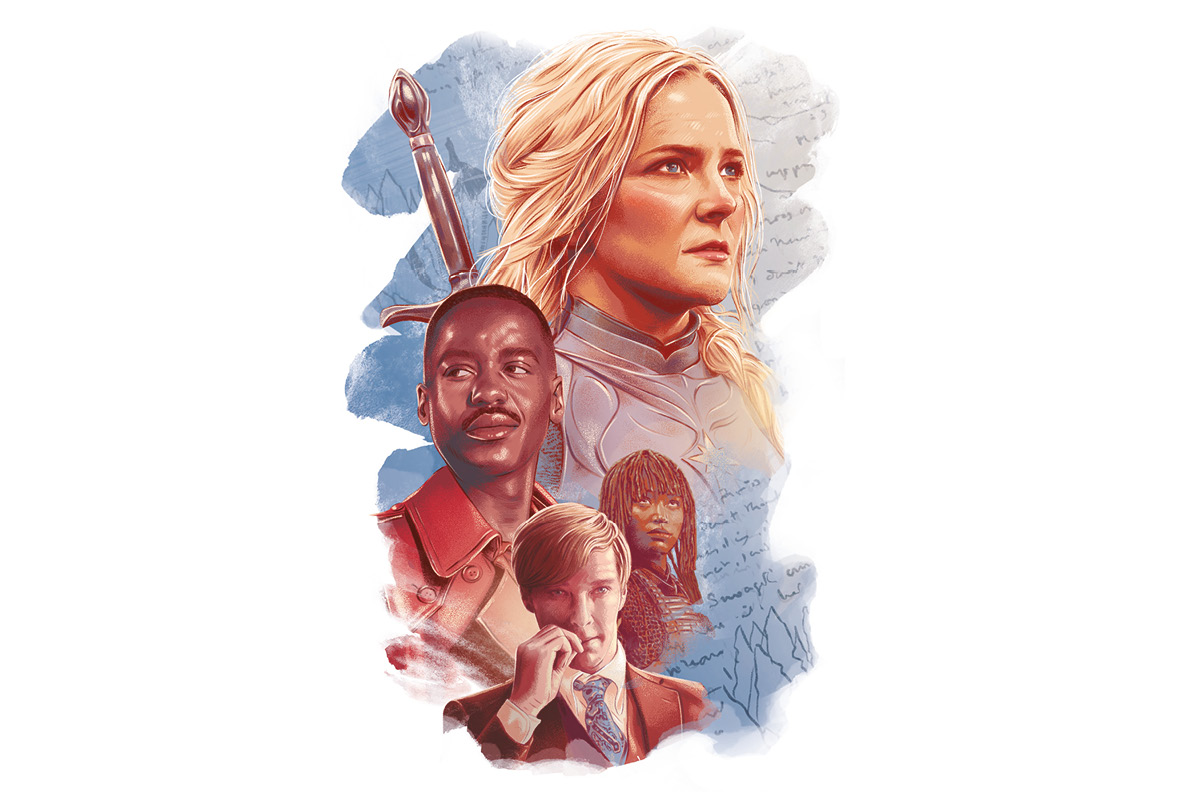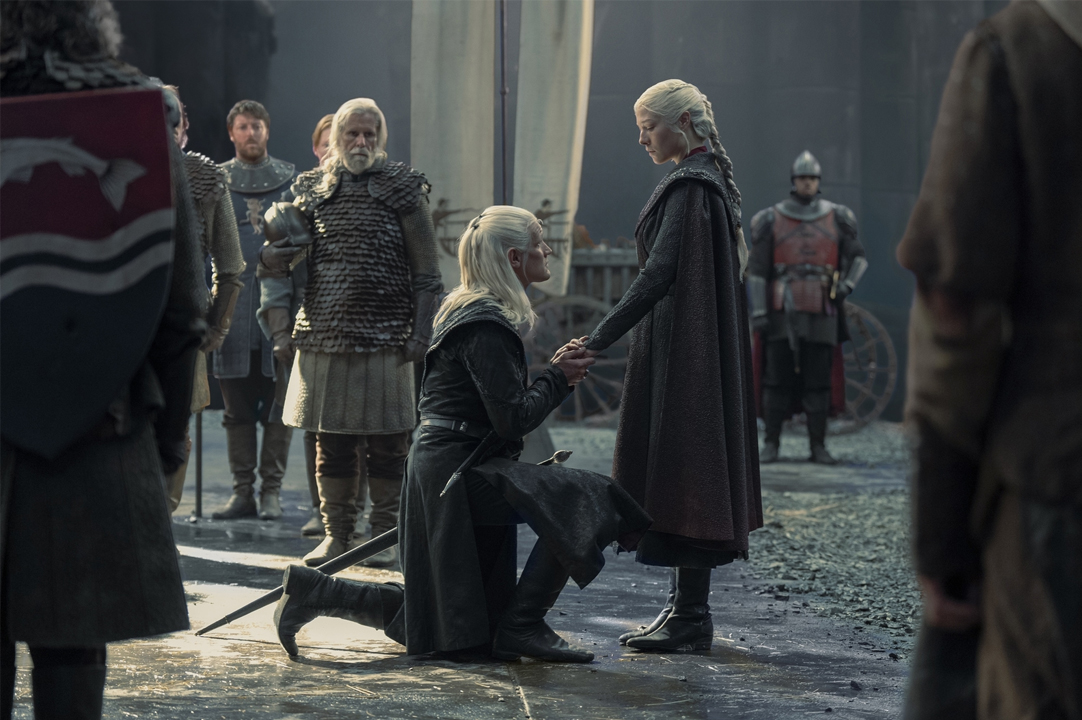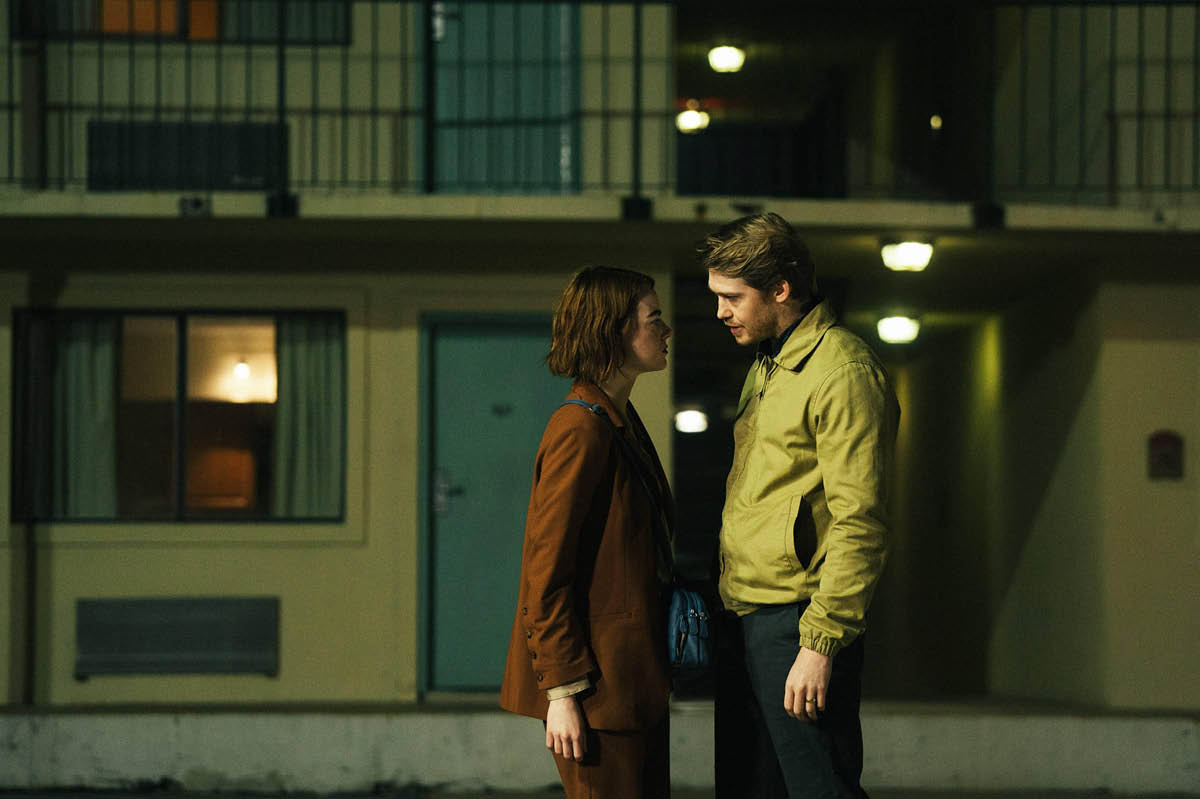No one likes to watch television with me, because I am that sick pedant who delights in pointing out anomalies and plot-line errors, never more so than when the show in question is connected in some way to a cherished book. That’s when my pedantry enters an almost superhuman phase, as I educate the room about literally every single deviation from the original literary source. HBO’s Game of Thrones series was an absolute gold mine in this respect, because it came out just after I’d finished devouring the books in George R.R. Martin’s epic series. If you haven’t read those books, you should do so now — as you may never again have this much spare time on your hands. But if you buy the books or take them out from a local library, do remember that the series is properly called A Song of Ice and Fire, and not(as per HBO) Game of Thrones — which itself is a one-letter bastardization of the title from the first book, published in 1991,A Game of Thrones. Like I said: 24-karat pedant gold.I saw exactly three-and-a-half episodes of the HBO series. I was permanently banned from these viewing sessions — literally sent out of the room — when, during the fourth installment, I held forth in detail on certain (admittedly minor) inaccuracies in regard to the protocols of the Night’s Watch. Upon leaving, I paused to offer a parallel between my own banishment and the effective exile from normal society endured by the Brothers of the Night’s Watch themselves. Unfortunately, this digression proved equally unpopular, despite my clever and dramatically rendered double entendre on the Black Brother’s eulogy line, ‘And now his watch is ended.’ (Watch. Get it?) Martin sometimes is compared to J.R.R. Tolkien, whose novels about Middle-earth—The Hobbit and The Lord of the Rings — comprise a similarly ambitious project. Both Tolkien’s world and Martin’s are rugged lands full of magic and a sense of haunting despair. Both works operate against the deflected Biblical idea of man operating in a fallen state, following upon some dimly remembered era of greatness and heroism. But crucially, Tolkien based his universe on the template of Norse mythology, while Martin seems to have been much more interested in channeling the very real dynastic dramas of Rome, Byzantium, Persia and other ancient empires, complete with their lurid sexual intrigues. Martin also is concerned with depicting the structure of whole societies, right down to peddlers, sailors, buskers and beggars. He even invents new forms of disease, religion and sexual fetish. Tolkien’s world, on the other hand, doesn’t really have any kind of society at all, or at least none that Tolkien particularly cared about: the plot is driven by a succession of lonely encounters with odd creatures who wander a sparsely populated patchwork of isolated caves, taverns, mountains, castles and forest clearings. Tolkien has plenty of adult readers, but his approach is oriented toward schoolboys, while Martin’s works are plainly meant to be read by adults. In one important way, the authors take completely opposite approaches to sketching out their fantasy worlds. Tolkien is somewhat conventional in the way he shows us Middle-earth through the eyes of the everyman (or, rather, everyhobbit), whereas Martin makes a point of shifting perspectives with every chapter. Memorably, he starts A Song of Ice and Fire from the perspective of a wretched military grunt accompanying a vainglorious dandy on a patrol of the civilized world’s northern fringes, his every muttered recrimination serving to sketch out the mix of feudalism and fantasy that characterizes this universe. Later on, Martin makes a habit of returning to characters who have endured radical reversals of fortune, and succeeds in instilling us with sympathy, or at least respect, for the book’s villains and antiheroes. When a bald and broken Cersei Lannister is paraded naked through the streets of King’s Landing in Chapter 65 of A Dance with Dragons, for instance, we expect, as readers, to cheer the disgrace of this scheming villainess. Yet as the crowd heaps scorn and filth on her, Martin brings us deep into her own memories and observations. At first, she holds her head high in Marie Antoinette fashion. But then she begins to crumble and almost goes mad, at which point we feel something close to sympathy. But then that sympathy is itself reversed when Martin ends the chapter by introducing Cersei to a menacing new character (well, perhaps not quite so new) who, in an instant, rekindles the sense of icy menace surrounding Cersei. The scene also reminds us that what we are reading is basically a fantastic soap opera full of eight-foot-tall warriors and magic spells. A Song of Ice and Fire is an absolute masterpiece of sword and sorcery. But though it periodically rises to the level of real literature, it does not take itself so seriously as to remain there.At times, Martin’s world does feel just a little too textured. I am thinking in particular of the lengthy arc within A Feast for Crows, in which Brienne of Tarth wanders somewhat aimlessly around southeast Westeros. Much as I enjoyed learning about The War of the Ninepenny Kings and other events of yore, the whole thing had the feel of a sort of Martin-esque Silmarillion. And there’s a reason Tolkien’s publishers rejected that book (in its early form) as a proper follow-up to The Hobbit. Had they not done so, the world might never have gotten The Lord of the Rings. (Indeed, I wish that J.K. Rowling’s publisher had been equally discerning in regard to Harry Potter and the Order of the Phoenix, much of which dwelled endlessly on the methods of wizard housekeeping; and Harry Potter and the Deathly Hallows, half of which seemed to be about bickering and camping.)As this is a time of sickness and quarantine, many of us have plenty of time to read great works whose equally great length otherwise might intimidate us. If you have never read A Song of Ice and Fire, now is the time to do so. And if you prefer the spoken word, I enthusiastically recommend Roy Dotrice’s unabridged narration of all five books. The running time is 202 hours, which at two hours per day will put you into midsummer. By that time, I hope, we all might be able to leave our houses without fear of contracting the non-fictional equivalent of Prince Garin’s curse. Jonathan Kay is an editor at
Quillette.



